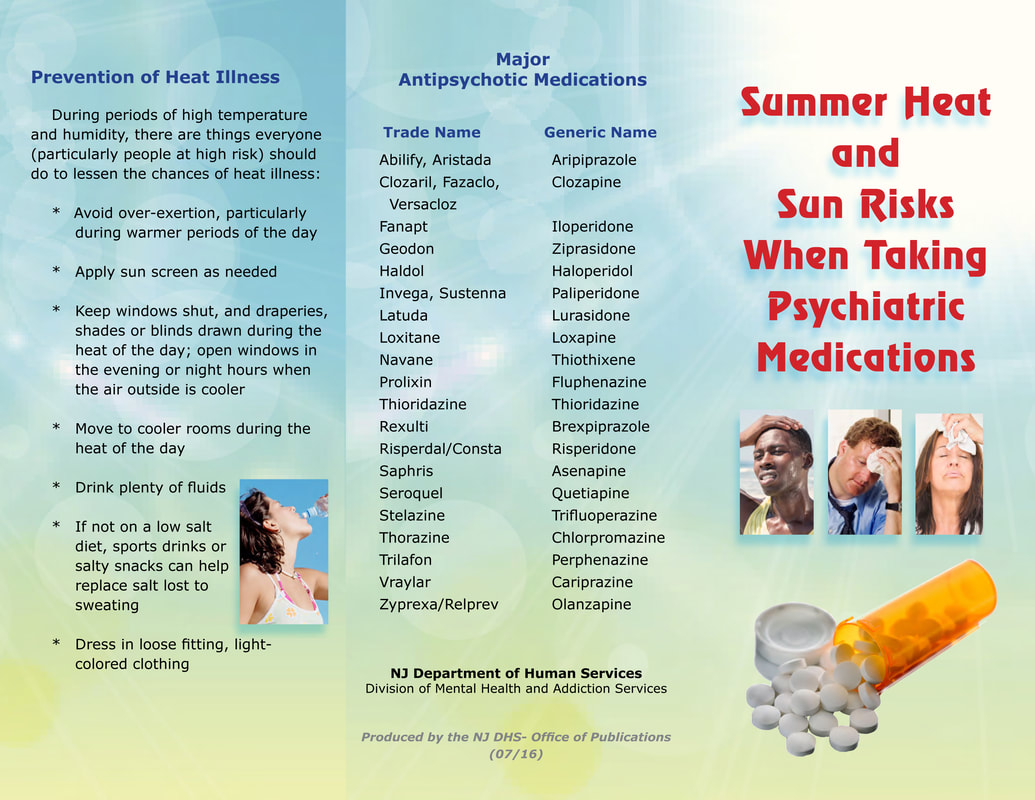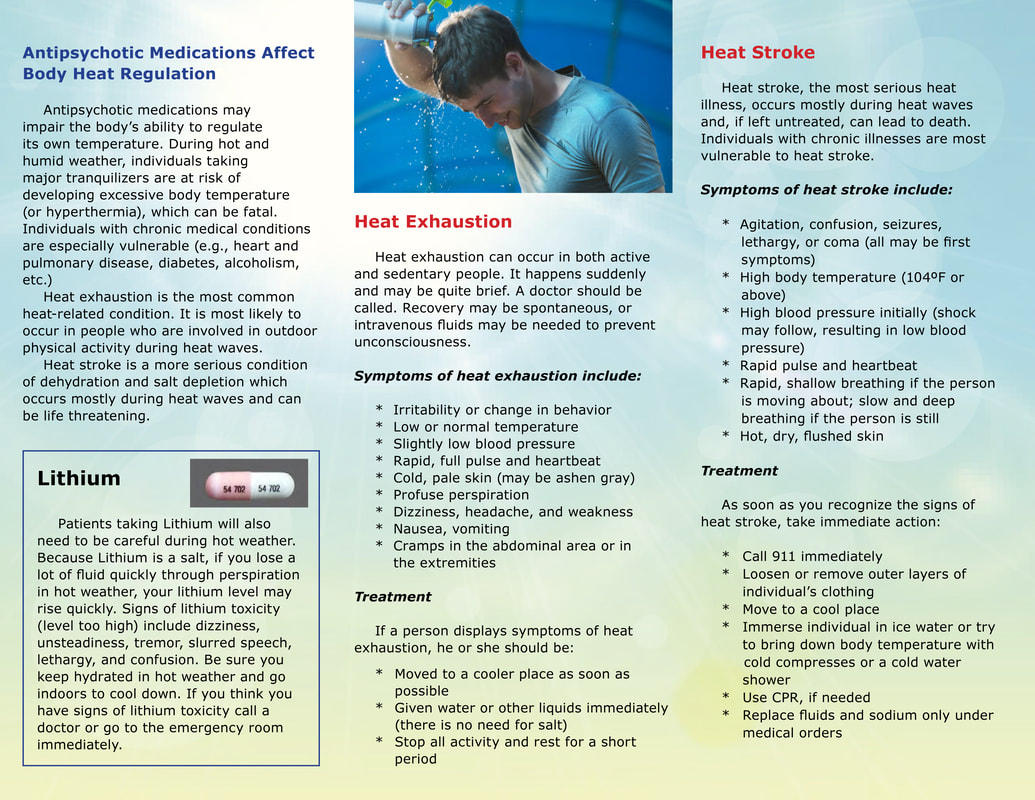What you Need to Know About
Psychiatric Medications & Summer Heat
As the weather starts to warm, the risk of heat related illness rises, especially for those on psychiatric medication. During hot humid weather, major tranquillizers may lead to excessive body temperature, and anti-psychotic medications may impair the body’s ability to regulate its own temperate. In addition to anti-psychotics and major tranquillizers, patients taking certain mood stabilizers need to be careful during hot weather. Notably, Lithium can cause lithium toxicity if the individual loses a lot of fluid quickly through perspiration, and Lithium toxicity may lead to heat exhaustion or stroke. Individuals taking these psychiatric medications are at risk of heat exhaustion or heat stroke, especially if they have an underlying, chronic medical condition (heart and pulmonary disease, diabetes, alcoholism, etc.)
To avoid heat-related illness, there are simple preventative measures one can take; avoid over-exertion, especially during mid-day hours, apply sunscreen as needed, keep windows and drapes shut during the heat of the day, and keep windows and drapes open when the outside air is cooler, drink plenty of fluids, use sports drinks and salty snacks to replace salt lost through sweat, and dress in loose fitting, light-colored clothing. To learn more, review brochure below.
To avoid heat-related illness, there are simple preventative measures one can take; avoid over-exertion, especially during mid-day hours, apply sunscreen as needed, keep windows and drapes shut during the heat of the day, and keep windows and drapes open when the outside air is cooler, drink plenty of fluids, use sports drinks and salty snacks to replace salt lost through sweat, and dress in loose fitting, light-colored clothing. To learn more, review brochure below.



